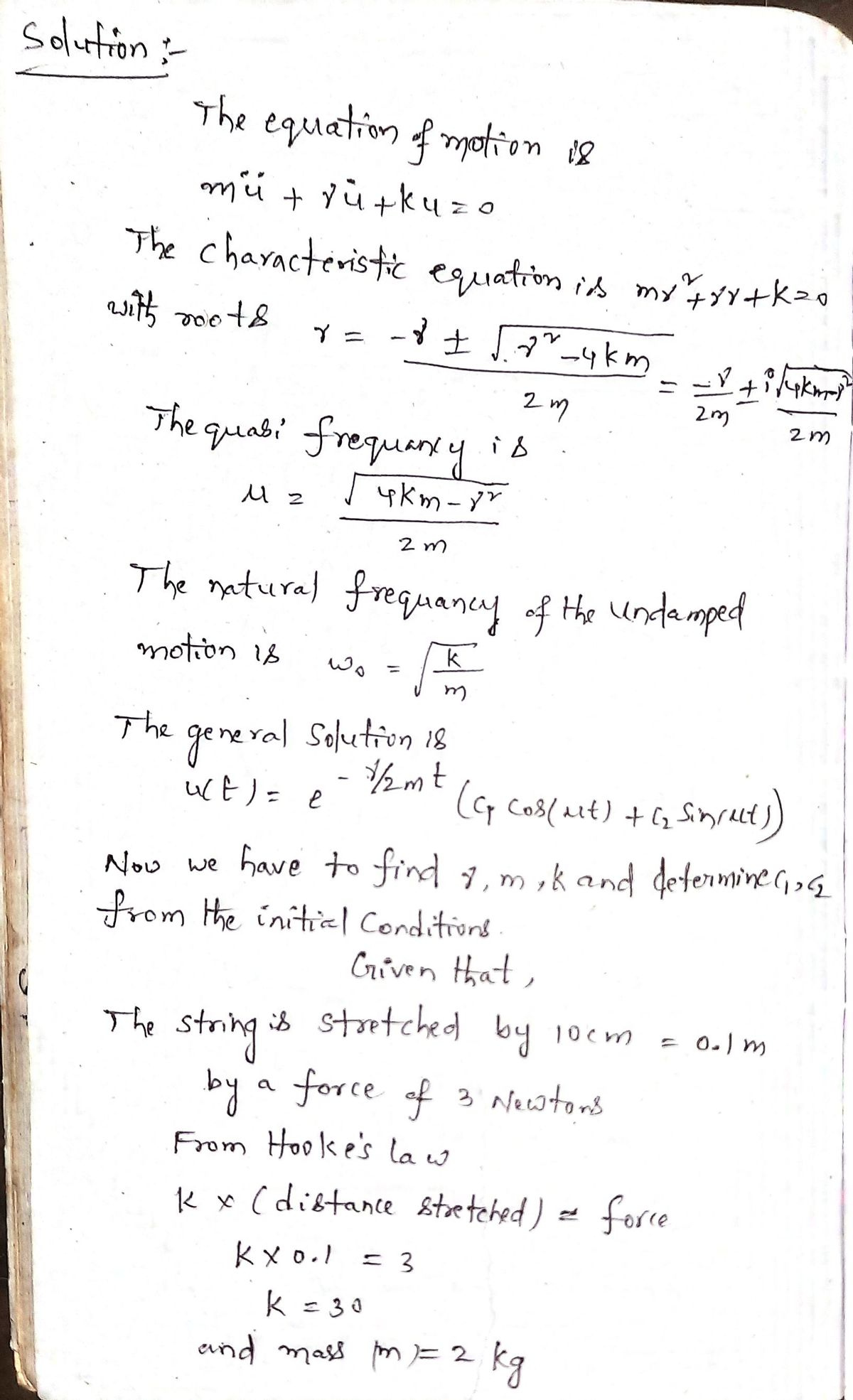1. A spring is stretched 10 cm by a force of 3 N. A mass of 2 kg is hung from the spring and is also attached to a viscous damper that exerts a force of 3 N when the velocity of the mass is 5 m/s. If the mass is pulled down 5 cm below its equilibrium position and given an initial downward velocity of 10 cm/s, set up the initial value problem which determines the position u(t) at any time t. You don't need to solve the IVP.
1. A spring is stretched 10 cm by a force of 3 N. A mass of 2 kg is hung from the spring and is also attached to a viscous damper that exerts a force of 3 N when the velocity of the mass is 5 m/s. If the mass is pulled down 5 cm below its equilibrium position and given an initial downward velocity of 10 cm/s, set up the initial value problem which determines the position u(t) at any time t. You don't need to solve the IVP.
Related questions
Question
please show on paper

Transcribed Image Text:1. A spring is stretched 10 cm by a force of 3 N. A mass of 2 kg is hung from the spring and is also
attached to a viscous damper that exerts a force of 3 N when the velocity of the mass is 5 m/s. If the mass
is pulled down 5 cm below its equilibrium position and given an initial downward velocity of 10 cm/s, set
up the initial value problem which determines the position u(t) at any time t. You don't need to solve
the IVP.
Expert Solution
Step 1

Step by step
Solved in 2 steps with 2 images
